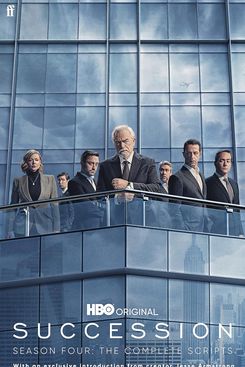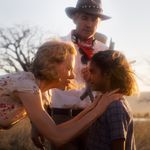When Succession was commissioned by HBO, I had previously managed to produce a grand total of one hour of filmed television drama as a solo writer. Even that was under the supervision of Charlie Brooker, within the tonal world he had created for his Black Mirror anthology. But after my second solo hour was complete — the Succession pilot — I rather suddenly found myself alone as the showrunner, final authority, and decider on a hundred-million-dollar-plus enterprise. The step up in terms of responsibility was vertiginous. I bought a book called The TV Showrunner’s Roadmap, but was too intimidated and too busy to ever open it.
But of all the challenges and responsibilities of the years running the show, the question that weighed by far the heaviest was deciding when to draw it to a close.
It was back when we were still writing the third season that I started sketching out options. Even though the motor in the room was still running hot and we still had ideas — lots and lots of ideas — and even though all the complicated ways people can be still felt inexhaustible, nevertheless the big plot engine, the brutal materialist plumbing which ran under the show, was looking to me like it would eventually start to lose pressure.
Out in the world, legacy media’s battle with tech was not a fair fight, it was a rout. The particular generational tussles that were the background to the show were ending the way all generational fights do, as Redstone passed away, Murdoch faded, Prince Philip and then Queen Elizabeth died. The swashbuckling deal-makers of the end of the last century, it seemed to me, had given way to the Thiel generation of Elon, Daniel Ek, and Zuckerberg. The action had moved on and we needed to get out of legacy media almost as fast as Rupert had.
So once season three was complete and aired, in December 2021, I got my fellow executive-producer–writers together. Lucy Prebble, Tony Roche, Jon Brown, and Will Tracy joined me at my office in Brixton to look at the alternative future-season shapes I’d written up on the walls: one final season of ten episodes, or two of six or eight episodes. My sense was that we should do one last full-fat season rather than stretch it out. But I was wary of saying good-bye too fast to all the relationships and opportunities, of leaving creative money on the table, regretting all the subplots that would go unwritten, the jokes left untold.
We went round the room, this little committee on whether to whack the show. Will, the coldhearted killer, voted over Zoom for just one more season. Jon thought two more. He had always imagined that five seasons was the right shape. Tony said that what he wanted for us, for himself, was to keep making the show, but in his heart he thought the creatively wise thing might be to end. Lucy, I think, put the question to bed: We could, if we wanted, keep going with a show that became increasingly rangy and fun — a climbing plant grown leggy but still throwing off beautiful blooms now and then. But the ten-episode season was the muscular way to go out.
The shape of the final season from then never really altered in its essentials: Logan to die early, a shock, as death so often comes in life; a blast from the captive bolt pistol, experienced as a shock wave by his children while some or all of them were at a wedding. The deal with GoJo had to go through. That was the case in the world, so it had to be the case for us. In terms of the particulars of who might end up as CEO, since season two the idea of Tom winning out had started to glitter in the distance. Not only did the kids lack application, but also, crucially, they were arriving to this particular party at the wrong time. In the ’50s and ’60s, Murdoch could inherit and grow and thrive. Now if you weren’t a media founder, it felt more plausible for an amenable man like Tom to rise gently like a bubble of air in the tank. A corporate fusion of Kenneth Widmerpool and Joseph Stalin.
Notwithstanding this route map, all through the writing and shooting of the final season, with some gentle encouragement from Casey Bloys at HBO, I tried to keep the “multiple future season” version of the show alive. Almost so that the show itself didn’t know it was ending — to keep things open, to allow other possibilities. Partly this was for creative reasons, so that the ending didn’t become freeze-dried and prepackaged. But also because once we pulled the lever definitively, in a pure business sense, the metal gears of L.A. business, agents, and managers would engage and crush all other possible futures out of existence.
But I never had a serious wobble. No other way of going forward felt persuasive. Even when I made the long walk from the season-four room in Victoria, hot and queasy past the pelicans in St. James’s Park, up to the Ivy restaurant to meet Brian Cox to tell him what I thought happened at Connor’s wedding. Even then — sad though I was, nervous, feeling a little like a man with a loaded revolver rather than a MacBook bumping at my damp shirt from my backpack, even then — I always had a feeling that this was just right. Whatever people made of the end of the show, we’d thought about it hard, and this was simply how this story had to go.
Of course, knowing that the arc of the season is essentially right doesn’t mean that the writing goes easily. No, there are still many days when you stare at the index cards which were supposed to spell out the spine of the episode and they no longer connect. You start to feel you can’t really remember what a story is. What is it even that people like about a TV show? About anything? What is true? And you can find yourself Googling, “What is a story?” “What things do people do?” “What is interesting?”
What’s so terrifying about writing a show is that, before each draft gets to the level it must, it is always possible that it will be a disaster. Indeed, it is only the certain knowledge of the terrible inadequacy of each episode that motivates all the work on the many drafts necessary to save it. And that grinding fear lasts for months, for years. The fear you’ll forget the heart of the show, that you’ll misplace it, get distracted by some shiny thing, get pulled off the true path by some seductive byway. I can barely describe before the show is written, before it is right, how empty and lacking and wrong it feels. How many days and weeks in Williamsburg and Long Island City there were fearing that this episode, this was the one where we lose control, run out of energy, and let the whole enterprise be spoilt because of exhaustion or inattention.
And in amongst it, just occasionally, you feel you get it right and the words make a spell. I remember just a couple of times being emotional as I wrote or rewrote. Once in Logan’s death episode, which came in a tumble, the long middle section barely revised after its first draft, when Shiv calls her dying or dead father “Daddy” — and then once in season two, rewriting the scene where Kendall tells Shiv he doesn’t know what he would be for if his dad didn’t need him.
What I recall most about that Kendall-Shiv scene, though, is not the writing, but how odd it was seeing the brilliant way it was executed on set. Sarah and me and Jeremy had a debate about who should first offer the hug. The actual human acting moment was all about execution, debate, discussion, looking at the angles with Georgia Pritchett and directors Bob Pulcini and Shari Springer Berman. How odd that at Christmas in Brixton it could make me cry, but on setup on the 33rd floor of World Trade Center 7, it had already happened and all the extraordinary talent and engagement of the actors was focused on landing the fish, making payment on a check already written.
The final draft of the show isn’t the script. It’s the version we air. My fellow writers and I always wrote and rewrote scripts with the knowledge that we could in safety try something a little more grayed-out and subtle, or a little odder, or a little more vivid and “red,” as Lucy Prebble would say in the room; knowing that if the execution on celluloid left something too opaque or too vivid we had a safety net. That we could dance closer to the precipice with the assurance that the final, final edit was yet to come. It’s a great freedom. Without the power American TV gives a showrunner, the temptation can be to write in a closed-off, invulnerable way with every scene sleek and sealed — less prone to misexecution or misinterpretation. And that’s a shame. Because I do think the cracks are where the light gets in — the bits of a show that elbow out at odd angles, the bones that stick in your throat.
What I always hoped for in the show was that sense of something you couldn’t look away from. Episodes that both demand the viewers’ full attention and were worthy of it. And that quality comes from the careful plotting in the room, and then careful writing and rewriting. But it also comes from what we choose to leave out. Because there’s a paradox about the core of a TV show, especially one that lives somewhere in the world of the satirical. If you don’t have anything you want to say, there’s a danger the show will never live. But at the same time, if you do have something to say, there’s a danger that if you ever state it, it will kill the whole endeavor, so it lies flat and dead, like a propaganda leaflet dropped in the street. What you have to do is trust that if you set things up right and hold the tone and create the universe correctly, you can step back from the mechanism, let it run, and say, as in Walter Benjamin’s useful but disingenuous declaration: “I have nothing to say, only things to show.”
An ancillary benefit of keeping yourself out of the show is that what you thought you were transmitting is not necessarily what people will receive. And that’s a good thing. People are hungry, especially right now perhaps, for things that are other than what they seem — characters and situations that are allowed to be multiple. We all have an impulse to want to pull the mask off the baddie and have something simple revealed — base truths and clear explanations. But that first reducing, simplifying impulse will likely never wholly satisfy because it offends our deep sense of what the world is really like.
Taking a hard look at the world as it is, that would be my definition of satire, I think. This might be a less lofty ambition than an older version where satire functioned — or was imagined to function — in a sort of dialectic relationship with power. The idea that things happened in the public-political arena, and were then critiqued and mocked, and that interaction provided a release valve or even pointed in the direction of an alternative — I’m not sure that was ever how it actually worked. But even the idea of that relationship feels falsely soothing now that the powerful and the satirists are all seeking attention in the same ring of the circus. Which doesn’t mean that the annual article, “Is satire dead?” is ever going to be more fresh. That article will forever be boring and wrong. But it does mean the satirical approach needs to come in at a different angle. It probably always does, every generation. Comforting the afflicted feels relatively straightforward. But afflicting the comforted? Maybe it will go better if you avoid announcing your intention too clearly at the door.
I went into Succession not really knowing what a showrunner is. As we finish, I’m still not entirely sure. I think of myself as essentially a writer. But a writer empowered to protect the scripts through the rooms where they are conceived and written and rewritten, performed, captured, and edited. From the insubstantial spider crawl down the center of a page in Final Draft to that digital flicker that can be summoned from nowhere and disappear to nowhere. Shepherding the show out of one dream state into another through the unbelievably real mess of production — of a thousand early mornings, scrambled eggs, stubbed toes, and fraught discussions under the hot lights of what the hell we were thinking any of this meant.
The shape of the season may have been set from early, but getting there was 18 months of work — from the first writer meetings to the last day in the edit, playing with the sequence of the final shots. You won’t find the end of the show, as it went to air, written in the scripts. That we found on the day. I didn’t know when we started the day we’d end it looking out to the water and Ellis Island and the Statue of Liberty beyond. In fact, I was worried, shooting into the bitter cold sundown, that the statue’s inclusion was too direct a symbol. Mark Mylod reassured me that on a TV screen it would be what it is — a little nub in the distance. But I knew that just as we’d started the show on the endless ride from Battery to holy Bronx with the Beastie Boys trying to lyrically span New York, this little green breast of grass was the place to end. On that tip of New York once partitioned off for safety by Wall Street, where securities and enslaved people were traded, and from where the city first started to grow fat.
Excerpted from the introduction to Succession: Season Four: The Complete Scripts by Jesse Armstrong published by Faber & Faber. Seasons 1–3 are available now in the US; Season 4 is available from September 26.
Jesse Armstrong donated the fee for this article to the Entertainment Community Fund.





